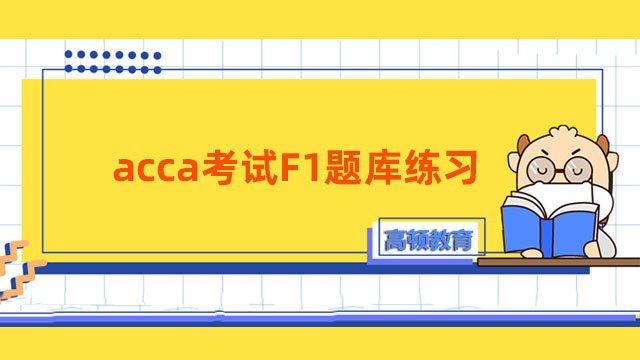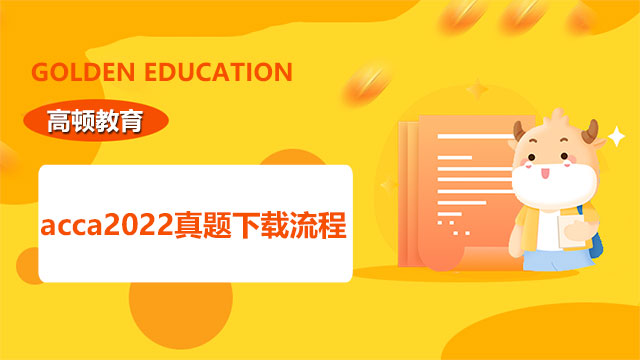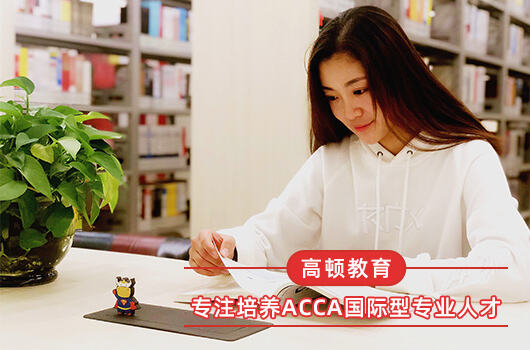ACCA考试P1-P3模拟题及解析14
来源:
高顿网校
2014-07-18
以下是高顿网校小编为学员整理的:ACCA P1-P3模拟题及解析。
Jojo Auditors is an audit practice with five partners. The five partners have worked together for several years and, as well as being work colleagues, are personal friends with each other. At Jojo it is customary for the performance of all student accountants to be appraised after their first year of a training contract using a range of criteria including examination success, technical ability and professionalism. Three levels of outcome are possible:
1.‘Good’, allowing students to continue with no issues;
2.‘Some concerns’, meaning students are counselled and then allowed to continue; and,
3.‘Poor’, where students are dismissed from the audit practice.
The appraisal committee is comprised of three people: managing partner Jack Hu, the training manager (both of whom are professional accountants) and the person responsible for human resources. The committee receives confidential reports on each student and makes decisions based on the views of relevant engagement partners and also exam results. It is normally the training manager who makes the recommendation and in most cases his appraisal is agreed and then acted upon accordingly. Because the appraisals are confidential between the student and the firm,the list of students and their appraisal categories are not publicised within the firm.
When the 2010 intake was being appraised last year, one student was appraised by the training manager as ‘poor’but was not dismissed. Polly Shah was unpopular among other students because she was considered lazy and technically weak. She also failed a number of her exams. Other students who were appraised as ‘poor’ were dismissed, but Polly received a brief counselling session from Jack Hu and then returned to her duties. Polly stayed for another year and then, having failed more exams, left Jojo to pursue other career interests outside accounting.
Polly’s departure triggered some discussion amongst Jojo’s partners as to why she had been retained when other poor performers had not. It later emerged that Jack Hu was a close friend of Polly’s parents and had enjoyed free holidays in the Shah family’s villa for several years. Because he was the managing partner, Mr Hu was able to insist on retaining Polly, despite the objections of the training manager and the human resources representative, although the training manager was reported to be furious at the decision to retain Polly.
Required:
(a) Define ‘conflict of interest’ and assess the consequences of Jack Hu’s behaviour after Polly Shah’s appraisal.(10 marks)
(b) Describe four ethical safeguards that could be used in Jojo to prevent a recurrence of the events like those described in the case. (8 marks)
(c) The case raises issues of the importance of senior management performance measurement. In a public company,this refers to directors, and in a privately-owned partnership like Jojo, it refers to partners. The managing partner (Mr Hu’s position) is equivalent to the role of chief executive.
Required:
Explain the typical criteria used in the performance measurement of individual directors and discuss the reasons why individual performance measurement of partners may be difficult to implement at Jojo.(7 marks)
(25 marks)
Answer:
(a) Conflict of interest and discuss the consequences.
Conflict of interest
A conflict of interest occurs when a person’s freedom of choice or action is constrained by a countervailing interest, which means that the most objectively correct course of action cannot be taken. The discretion to act correctly is fettered by the need to protect a related but contradictory interest. In the case of Jojo Auditors, Jack Hu experienced a conflict of interest between carrying out the agreed policy of dismissing all students assessed as ‘poor’ (such as Polly Shah) and his familiarity with the Shah family and his making a personal gain from the family in the form of free holidays.
Consequences
Mr Hu acted against the best interests of the firm including his fellow partners. In his role as managing partner, he owes it to the other partners, and to the employees and clients of the firm, to act responsibly and always in the best interests of the firm. His conflict of interest prevented this from happening.
In acting as he did, Mr Hu compromised the other committee members and made them compromise their own professional values. Both the training manager and the representative from human resources are engaged in order to maximise their benefit to Jojo and as managing partner, Mr Hu ‘bullied’ them into accepting his view. This decision undermined the training manager and thus circumvented the normal chain of command in matters of student assessment.
He knowingly allowed a technically weak student to be retained thereby potentially compromising the quality and integrity of the audits she would work on. He owes a professional duty to the shareholders of the companies that Jojo audits. Audits should be conducted diligently, and technical accuracy should underpin the application of auditing standards and in following procedures and protocols. A technical weakness (such as Polly’s) would potentially weaken the effectiveness of the audit and hence be a failure of a duty of care to the client’s shareholders.
In acting as he did, Mr Hu gave the appearance of unfairness and a lack of objectivity. The appearance of integrity and probity is important in leading organisations and even were it not true, Mr Hu allowed his integrity and objectivity to be seen as questionable. Once discovered to have made the decision he did, confidence in the assessment process at Jojo would have been lost and this could have the effect of damaging its reputation as a provider of training contracts, and therefore in the services provided by the firm.
(b) Ethical safeguards.
Mr Hu could undergo some instruction or continuous professional development (CPD) on the fundamental principles of professionalism and the need to avoid conflicts of interest. As a professional accountant, he is bound in any case by the codes of ethics and/or rulebook of his professional body and the IFAC code. Most of these specifically warn against such conflicts,including the acceptance of gifts unless the value is trivial and inconsequential, and his professional body may provide such a course of instruction.
Enforce a requirement to declare any conflicts of interest at the beginning of each meeting to consider student assessments.
This could be made a ‘standing item’ on the agenda so that it had to be considered before each time that assessments were considered. The declaration of conflicts of interests could also be made a part of the recruitment process for new partners where appropriate.
Rotate the partner who chairs the assessment committee. This would mean that the chance of Mr Hu being the partner considering Polly Shah’s case would be reduced (in the case of Jojo) to one in five. Other partners without the conflict of interest would, in any given meeting, be more likely to be chairing.
Involve an additional partner in the review of student assessments, more able to confront Mr Hu than the training manager or HR manager, neither of whom are at partner level. Another partner would have the organisational ‘weight’ to confront Mr Hu in a way that the training manager or HR manager evidently did not.
The outcomes of the assessments could be validated by an external party (akin to the role that a non-executive director might play if Jojo were a public company). A retired partner could discharge such a role, for example, or a human resources consultant. The final decision on each student would not be made known until each had been ‘signed off’ by the external party.
Keep an internal HR file formally recording the list of students by assessment category. This would make the decision to retain Polly, in spite of her ‘poor’ assessment, much more visible to relevant business managers. This would apply greater consistency because it would be more transparent that Polly was retained even though her assessment was rated as ‘poor’.
(c) Performance evaluation of partners.
Criteria for individual performance measurement
The criteria used to measure the performance of directors and/or partners (in a partnership) vary according to the situation.
Some criteria will be much more important than others, and highly context-specific criteria may apply in some organisations.
In general terms, however, four typical criteria are helpful to consider.
The level of independence of the person (such as being free from external vested interests) and commitment to the public interest. This is especially important in accounting practices where serving the public interest is an important component of professional service.
Preparedness and fitness to practise including maintaining the relevance of skills and undertaking relevant continuing professional development. For the partners and Jojo, this would involve maintaining knowledge of current audit and reporting standards, for example.
Practice, including levels of participation in their allocated roles and their competence in those roles. Linked to this is the contribution made to the formulation and implementation of the organisational strategy.
Contribution to committee work and administrative duties as appropriate. Mr Hu’s effectiveness in his role as member of the committee that evaluates student progress would fall within this area, for example.
Difficulties of individual performance measurement at Jojo
As a privately-owned business, there is no external pressure for such a procedure. This is because, as an unincorporated business, there are no listing rules enforced by a stock exchange and no external shareholder pressures to be applied. There is no agency gap created by a separation of ownership and management.
There is unlikely to be an independent non-executive director (NED) structure in place to support and carry out the performance measurement. Because of the difficulties raised by full-time senior management appraising each other, NEDs take a role in this in listed companies. Without this element of external independent scrutiny, it would be very difficult to maintain independence and fairness in a performance measurement system.
The informality of relationships in a smaller partnership may make objective assessment impossible, especially if, as in a smaller practice, longstanding personal friendships may be a strong component of the culture. With the five partners being personal friends with each other, it would be very difficult for the partners to conduct objective performance appraisals on each other.
There is likely to be resistance from some partners, at least from Jack Hu, who, if appraised, would be likely to receive a poor assessment on some criteria. As the managing partner (the equivalent of a chief executive in a partnership), it would be difficult to arrive at a fair measurement process for Mr Hu without the involvement of external parties (such as NEDs).
高顿网校小编寄语:勤思则得,善问则裕,广泛交流,深入切磋。

扫一扫微信,*9时间获取2014年ACCA考试报名时间和考试时间提醒
高顿网校特别提醒:已经报名2014年ACCA考试的考生可按照复习计划有效进行!另外,高顿网校2014年ACCA考试辅导高清课程已经开通,通过针对性地讲解、训练、答疑、模考,对学习过程进行全程跟踪、分析、指导,可以帮助考生全面提升备考效果。
报考指南:2014年ACCA考试备考指南
免费题库:2014年ACCA考试免费题库
考前冲刺:ACCA备考秘籍
高清网课:ACCA考试网络课程
报考指南:2014年ACCA考试备考指南
免费题库:2014年ACCA考试免费题库
考前冲刺:ACCA备考秘籍
高清网课:ACCA考试网络课程
版权声明:本条内容自发布之日起,有效期为一个月。凡本网站注明“来源高顿教育”或“来源高顿网校”或“来源高顿”的所有作品,均为本网站合法拥有版权的作品,未经本网站授权,任何媒体、网站、个人不得转载、链接、转帖或以其他方式使用。
经本网站合法授权的,应在授权范围内使用,且使用时必须注明“来源高顿教育”或“来源高顿网校”或“来源高顿”,并不得对作品中出现的“高顿”字样进行删减、替换等。违反上述声明者,本网站将依法追究其法律责任。
本网站的部分资料转载自互联网,均尽力标明作者和出处。本网站转载的目的在于传递更多信息,并不意味着赞同其观点或证实其描述,本网站不对其真实性负责。
如您认为本网站刊载作品涉及版权等问题,请与本网站联系(邮箱fawu@gaodun.com,电话:021-31587497),本网站核实确认后会尽快予以处理。
点一下领资料
【整理版】ACCA各科目历年真题
真题高频考点,刷题全靠这份资料
下载合集
acca全科学习思维导图
梳理核心考点,一图看懂全部章节
下载合集
2023年acca考纲解析
覆盖科目重难点,备考按照计划走
下载合集
acca备考 热门问题解答
- acca考试怎么搭配科目?
-
建议优先选择相关联的科目进行搭配报考,这样可以提高备考效率,减轻备考压力,1、F1-F4:为随时机考科目,难度较低,这里可以自行随意选择考试顺序。2、F5-F9:如果你的工作的和财务会计或者审计有关、或者你比较擅长财务和审计的话,推荐先考F7和F8。你可以选择一起考ACCA考试科目F7和F8或者先考F7(8)再考F8(7),这就要取决你一次想考几门。3、P阶段:选修科目中,建议企业首选AFM!第二部分科目进行选择,如果AA和SBR掌握学生更好,可以通过选择AAA,如果SBL掌握的好,可以自己选择APM。
- acca一共几门几年考完?
-
acca一共有15门考试科目,其中有必修科目和选修科目,考生需要考完13门科目才能拿下证书。
- acca一年考几次?
-
acca一年有4次考试,分别是3月、6月、9月和12月,分季机考科目是采取的这类四个考季的模式,而随时机考则是没有这方面的时间规定限制,可以随报随考。
- acca的含金量如何?
-
ACCA证书的含金量是比较高的,从就业、能力提升、全球认可等角度来说,都是比较有优势的证书,其含金量主要表现在以下几个方面:1、国际化,认可度高;2、岗位多,就业前景好;3、缺口大,人才激励。
严选名师 全流程服务
其他人还搜了
热门推荐
-
acca考试F1题库练习,考生必备! 2023-03-20
-
acca2022真题下载流程介绍,必做考前模考题! 2023-02-24
-
ACCA试卷出题形式?ACCA考试最快多久能通过? 2021-07-24
-
ACCA官方样题 F4(ENG) F8 2021-01-07
-
ACCA考试P1-P3模拟题及解析9 2021-01-07
-
四大会计事务所2017年终精华会评(中) 2018-02-01
-
2016年ACCA F1模拟练习题及答案 2016-02-29
-
2016年ACCA F8每日一练:Professional ethics 2016-01-26
-
2016ACCA考试F8自测题:Corporate governance 2016-01-26
-
关于ACCA考试P7中的专业和道德问题 2015-11-24
-
ACCA P5精选模拟题之战略性绩效考核 2015-10-10
-
ACCA F9模拟测试题之投资评估 2015-10-10
-
ACCA P3精选练习题之战略管理和组织变革 2015-10-10
-
2014年ACCA《公司法与商法》真题及答案七 2015-07-20
-
2014年ACCA《公司法与商法》真题及答案七 2015-07-20
-
2014年ACCA《公司法与商法》真题及答案六 2015-07-20
-
2014年ACCA《公司法与商法》真题及答案五 2015-07-20
-
2014年ACCA《公司法与商法》真题及答案四 2015-07-20
-
2014年ACCA《公司法与商法》真题及答案三 2015-07-20
-
2014年ACCA《公司法与商法》真题及答案二 2015-07-20
-
2014年ACCA《公司法与商法》真题及答案一 2015-07-20
-
2014年ACCA《公司法与商法》真题及答案八 2015-07-20
-
2015年ACCA考试模拟题 2015-06-26
-
2015年ACCA考试精选测试题汇总 2015-06-19
-
2015年ACCA考试《财务成本管理》模拟题汇总 2015-06-18
-
2015年ACCA考试F8模拟试题:Financial Management 2015-06-18
-
ACCA考试2015年《财务成本管理》模拟练习汇总 2015-04-27
-
ACCA考试2015年《财务成本管理》模拟练习5 2015-04-27
-
ACCA考试2015年《财务成本管理》模拟练习4 2015-04-27
 更多服务
更多服务

















